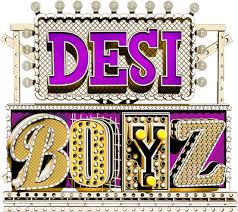Krishika Lulla & Ors. vs Shyam Vithalrao Devkatta & Anr.
[Criminal Appeal No. 258 & 259 of 2013 SC (Decided on 15.10.2015)]
Facts
Shyam Vithalrao Devkatta (Respondent), had authored a story named ‘Desi Boys’ and had registered the same with the Film Writers Association on 25.11.2008. Mr. Devkatta forwarded the synopsis of the story to his friend Mr. Ramesh Bhatnagar who further forwarded it one Mr. Ahsaan Sagar on 15.10.2009. Subsequently, Mr. Devkatta saw the promos of a film titled ‘Desi Boyz’, after which he filed a criminal complaint, as the adoption of the title Desi Boyz was an infringement of his copyright in the film title Desi Boys.
Judicial History
The Court of Metropolitan Magistrate had taken cognizance of the complaint, after which producers of the film (Appellants) approached the Bombay High Court for quashing of the complaint. However, the High Court refused to quash the criminal complaint as primafacie there was neither any abuse of process of the court nor failure of justice. Hence, the Respondent appealed to the Supreme Court which allowed the appeal and quashed the criminal complaint pending before the Metropolitan Magistrate.
Issue
Is the title of a literary work subject matter of copyright?
Holding
No, the title of a literary work is not the subject matter of copyright.
Rule of Law
“Subject to the provisions of this section and the other provisions of this Act, copyright shall subsist throughout India in the following classes of works, this is to say-
- original literary, dramatic, musical and artistic work….” -Section 13 (1), Copyright Act,1957
Analysis
The Court first delved into the meaning of subject matter of copyright under the Copyright Act, which includes an original literary work. However, the title of a literary work being insufficient by itself cannot be considered as a work and is only used to refer to the literary work that follows. The Court acknowledging the purpose for protecting a literary work, stated that protection cannot possibly be given to merely a single word, but some words that collectively form a literary work, e.g. a volume of a magazine or a part of such volume, which is then communicated to the public, from which the public derives certain benefits and the author is rewarded in return by way of copyright protection [Hogg v. Maxwell (1866-67) 2 L.R. 307 (Ch. App)]. Furthermore, a literary work should be literary in nature i.e. “concerning the writing, study, or content of literature, especially of the kind valued for quality of form”, which the title in question lacked. The Court then highlighting the lack of originality in the title due to the usage of commonplace terms ‘desi and ‘boys’ (R. Radha Krishnan v. Mr. A.R. Murugadoss and Ors. AIR 2014 Mad 25), said that copyright in a title can only subsist if it is something requiring invention e.g. a whole page of title (Francis Day and Hunter Ltd. v. Twentieth Century Fox Corporation Ltd. and Ors., AIR 1940 Privy Council 55).
Conclusion
The Court concluded that no copyright subsisted in the title ‘Desi Boys’, and therefore the action for copyright infringement was untenable.
Authored by Anchita Sharma
Image Source/ Attribution here, Governed BY Creative Commons License CC BY – SA 4.0



